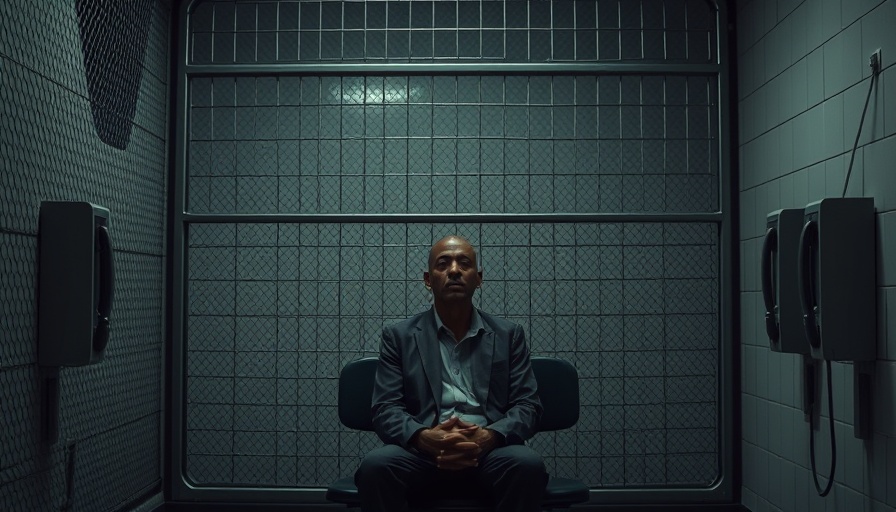
Legal Battle Intensifies Over Robert Roberson's Execution
In a tense reversal of fate, attorneys for Robert Roberson have filed motions to delay his impending execution scheduled for October 16, 2025. Convicted in the shaken baby syndrome case surrounding the death of his two-year-old daughter, Nikki Curtis, Roberson's legal team seeks a reprieve based on what they describe as "powerful new evidence of his innocence." This latest development emerges just a week after a State District Judge confirmed the execution date at the request of Texas Attorney General Ken Paxton’s office, igniting concerns over the haste of the judicial process.
A Closer Look at the Case's Background
Roberson's conviction stems from a 2003 incident where prosecutors argued he inflicted fatal injuries on Nikki through violent shaking. This assertion, categorized by the prosecution as shaken baby syndrome, led to severe head trauma and ultimately, the child's death. However, recent arguments initiated by Roberson's legal team highlight a differentiation of views among medical experts, with some contending that Nikki's death resulted from pneumonia complications rather than abuse.
The Motions That Could Change Everything
The legal team has submitted two significant motions to the Texas Court of Criminal Appeals. The first, an Emergency Motion for Stay of Execution, pleads for additional time to ensure the court thoroughly reviews the new evidence concerning Roberson's innocence. The second, a Motion for Oral Argument, emphasizes a procedural gap wherein no oral proceedings have occurred since Roberson's claims of innocence surfaced in 2016.
Addressing the Impending Execution Timeline
During a hearing, Judge Austin Reeve Jackson stated that while the execution date needed to be set, he recognized the appeals process required careful consideration. His comments reflect the delicate balance courts must maintain between the urgency of legal timelines and ensuring justice is served fairly. The lack of a ruling on the pending appeal suggests the courts acknowledge the situation’s complexity.
The Political Dimensions of the Case
Gretchen Sween, a member of Roberson’s legal team, expressed concerns about the motivations behind the hastened execution, implicating potential political motivations. She reaffirmed the argument that moving forward without fully addressing the fresh evidence contradicts ethical considerations within the justice system.
Growing Concerns Around Legal Precedents
Roberson's case is not just a solitary legal battle but reflects broader issues surrounding the use of outdated scientific testimonies and medical evidence that may have unduly influenced juries in past trials. The appeal filed by Roberson’s attorneys articulates a pressing concern: if judges and jurors are presented with unreliable medical evidence, justice is compromised. This case poses crucial questions regarding the standards of evidence that should prevail in capital murder trials.
Implications for Future Cases
As this high-profile case develops, it raises crucial implications for the criminal justice system, particularly in capital cases. The intersection of politics, science, evidence, and timelines reflects the broader complexities that not only influence individual fates but the precedents set for future cases.
Taking a Stand: Why Advocacy Matters
The fight for justice often requires persistent advocacy, particularly when late-stage evidence suggests wrongful conviction. It sheds light on the role of advocates who tirelessly work to ensure that all facets of justice are examined, providing a voice to the voiceless. This case highlights the importance of community engagement in legal maters where lives hang in the balance.
Ultimately, as the situation unfolds, the legal community and advocates for justice worldwide will be keenly watching how the Texas Court of Criminal Appeals responds to Roberson's new evidence and his team's appeals. Every step taken may bear weighty consequences in the pursuit of truth and fairness in capital cases.
 Add Element
Add Element  Add Row
Add Row 



Write A Comment